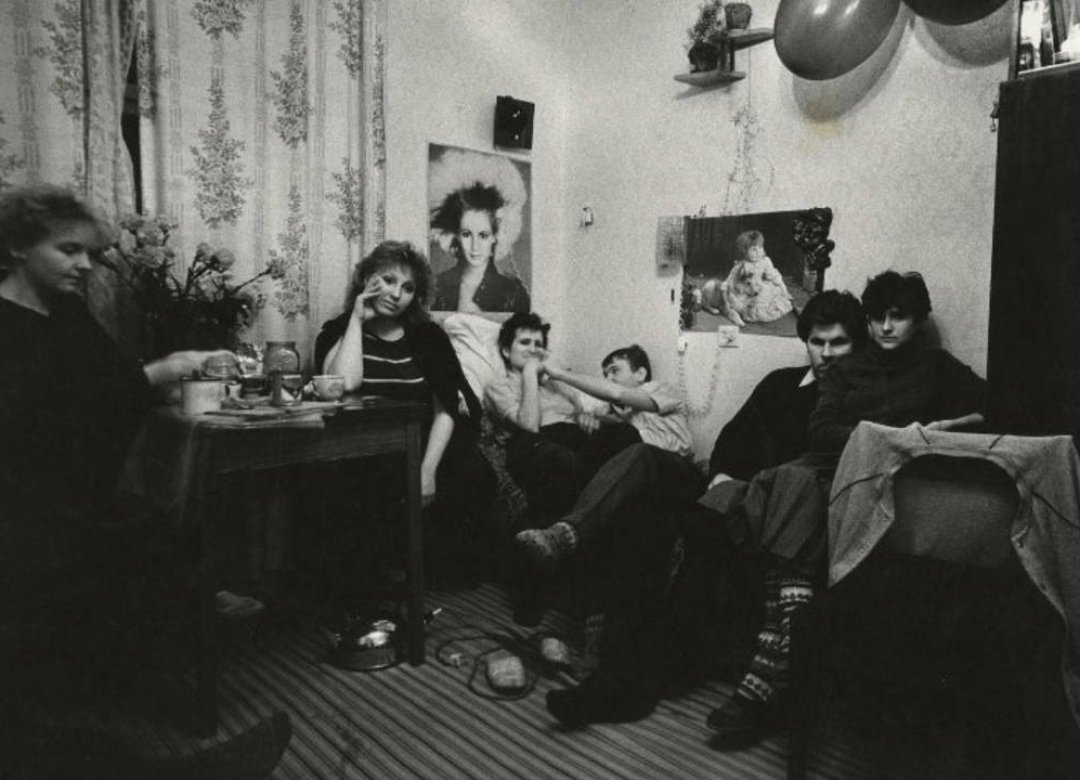Synopsis
In a Mexican restaurant in Vilnius, TV sets are playing old telenovelas. Renata, 40, sits down for dinner with her two early teen daughters who are dumbfounded by the visuals. She tells them how she was obsessed with these TV series when she was little.
The film follows several Lithuanian women from different generations who were all big fans of Latin American telenovelas in the 1990s. Telenovelas shook women's inner worlds across many post-Soviet countries. Stores would close, streets would empty, even cows were milked according to the telenovela schedule. In contrast to the Communist propaganda on TV, Mexican telenovelas presented women who were passionate, sensual, and expressive.
To understand the origins of this mass media product, the film takes us to Mexico where we meet the legendary actress Veronica Castro from The Rich Also Cry. She tells us about the telenovela business, her 1992 trip to Russia, and how she was shocked by the “machismo” culture in the region, just like in Mexico.
“Telenovelas literally helped me survive,” Renata tears up as she recalls how she used to daydream of her real father appearing to save her from the physically abusive stepdad, just like in telenovelas. Now, a renowned TV host, Renata works on social reality show “TV Aid” helping ordinary people solve their issues. In Lithuania, every third woman experiences domestic violence and Renata is working to prevent it.
Renata joins the documentary crew on her first trip to Mexico, where she meets her childhood telenovela stars. But more importantly, through chats with regular women, she explores the gender issues in Mexico, and asks how and why a product created by and for Latin American societies became so popular in Eastern Europe? And what can we learn from each other today?
Using telenovelas as an unexpected lens, the film dives into the issues of domestic abuse, gender roles, the evolution of femininity, sexuality, romantic relations, and feminism in the post-Soviet region.
The film follows several Lithuanian women from different generations who were all big fans of Latin American telenovelas in the 1990s. Telenovelas shook women's inner worlds across many post-Soviet countries. Stores would close, streets would empty, even cows were milked according to the telenovela schedule. In contrast to the Communist propaganda on TV, Mexican telenovelas presented women who were passionate, sensual, and expressive.
To understand the origins of this mass media product, the film takes us to Mexico where we meet the legendary actress Veronica Castro from The Rich Also Cry. She tells us about the telenovela business, her 1992 trip to Russia, and how she was shocked by the “machismo” culture in the region, just like in Mexico.
“Telenovelas literally helped me survive,” Renata tears up as she recalls how she used to daydream of her real father appearing to save her from the physically abusive stepdad, just like in telenovelas. Now, a renowned TV host, Renata works on social reality show “TV Aid” helping ordinary people solve their issues. In Lithuania, every third woman experiences domestic violence and Renata is working to prevent it.
Renata joins the documentary crew on her first trip to Mexico, where she meets her childhood telenovela stars. But more importantly, through chats with regular women, she explores the gender issues in Mexico, and asks how and why a product created by and for Latin American societies became so popular in Eastern Europe? And what can we learn from each other today?
Using telenovelas as an unexpected lens, the film dives into the issues of domestic abuse, gender roles, the evolution of femininity, sexuality, romantic relations, and feminism in the post-Soviet region.
Gallery


